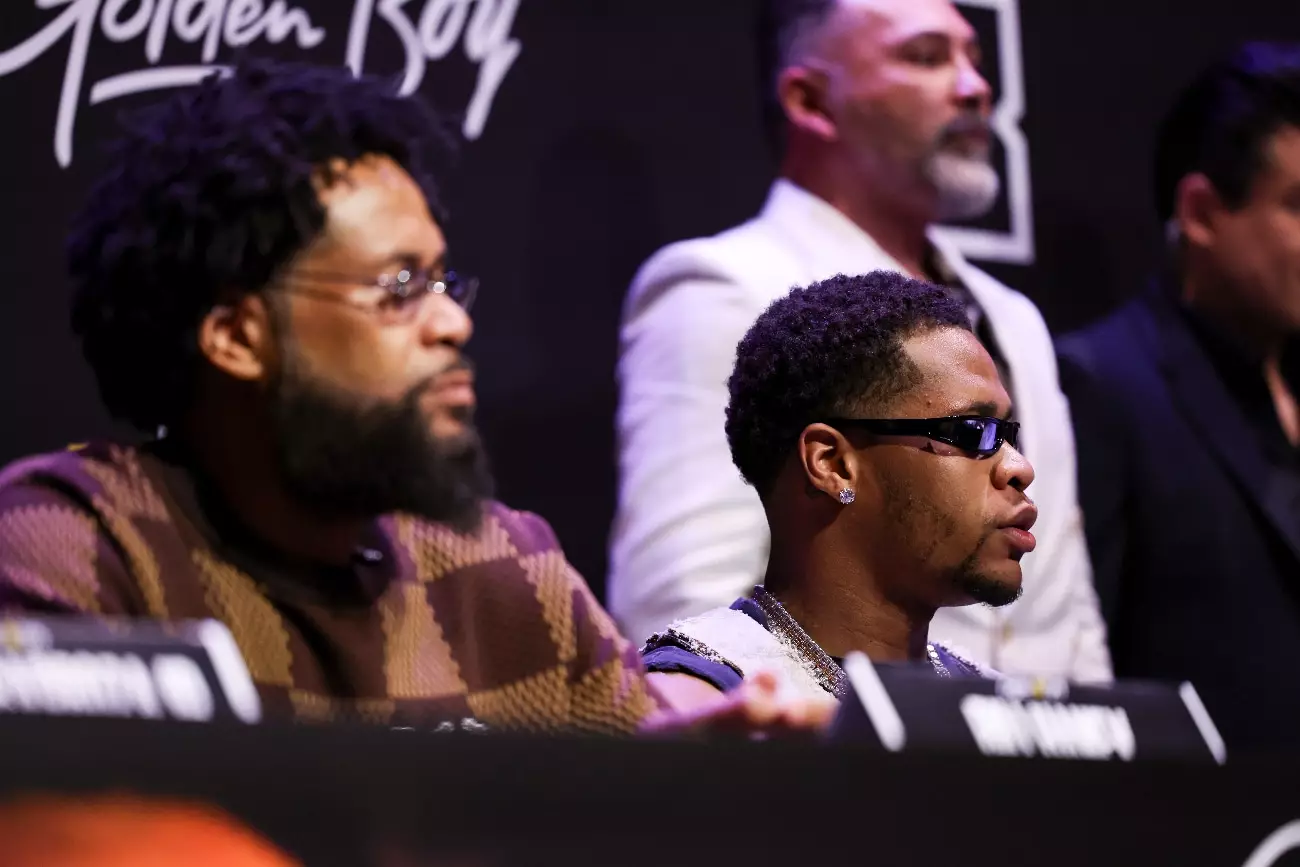In the high-stakes world of boxing, negotiations often resemble a game of chess, where every move can change the course of a fight before it even enters the ring. Recently, tensions have been reignited between Bill Haney, father and trainer of former champion Devin Haney, and rising star Ryan Garcia. Bill has given Garcia a mere 48 hours to enroll in the Voluntary Anti-Doping Association (VADA) drug testing program if he wishes to engage in a rematch with his son. At the heart of this ultimatum lies a complex interplay of ego, opportunity, and public image that could have far-reaching implications for both fighters.
To comprehend the nuances of this situation, one must first recognize the significant leverage that Ryan Garcia holds. With a record of 24-1 and a massive social media following of over 12 million on Instagram, Garcia is not just another contender. He symbolizes marketability and upstream demand in the boxing scene. Despite Bill Haney’s assertion that Ryan should capitulate to his demands, the reality is that the fight’s narrative may be controlled more by Garcia than by the Haney camp. In an industry where fan appeal and pay-per-view buys largely dictate success, Garcia’s clout may allow him to dictate terms, if not entirely, at least to a significant degree.
The 48-hour deadline issued by Bill Haney serves as both a challenge and a potential stumbling block for Garcia. While some may interpret this as a straightforward requirement for drug testing compliance, it functions on a deeper level as a test of will and concession. If Garcia succumbs to such pressure, it might encourage Team Haney to position themselves as the “A-side,” assuming greater control in the negotiation process. This might set a dangerous precedent where future negotiations could hinge on constant concessions from a fighter of Garcia’s stature, who has already proven himself in the ring against Devin Haney in their previous encounter.
Indeed, Garcia’s commentary during a recent interview suggests a growing resentment towards the perceived double standards within boxing contracts and negotiations. “I’m not going to give up everything just to get a fight done against a guy I’ve already beaten,” he stated, reflecting an awareness that he may be negotiating from a position of power. However, this power comes with its own set of risks. If he agrees to Haney’s conditions, the expectations likely increase, and the Haney camp may feel emboldened to impose additional demands.
Bill Haney’s interjections in public forums, including social media, imply a strategy to pressure Garcia into a corner, forcing him to validate his commitment to a fight in front of both fans and pundits. This type of psychological pressure is not uncommon in boxing, where the narratives often extend beyond the ring and into the realm of public opinion. The focus on drug testing serves as a distraction from the actual fight, pushing both fighters into a media spotlight that is as excruciating as it is revealing.
Further complicating the atmosphere is Bill’s claim of an unfair advantage during Garcia’s last fight with Devin. By suggesting that Ryan’s performance was less impressive than it appeared, he’s attempting to sway public sentiment, which can warp perception, influencing potential rematch viewers. This tactic, while common, raises ethical questions about how much weight narratives should hold against the actual statistics of fight results.
As this dramatic saga unfolds, the stakes rise significantly for both Ryan Garcia and Devin Haney. For Garcia, complying with the demands might immediately satisfy the conditions for a rematch but could also weaken his long-term negotiating power. Conversely, for Haney and his camp, adhering too strictly to terms could set the stage for a missed opportunity, particularly with a rising talent like Garcia, who is poised to fight other big names in the sport, such as Gervonta Davis.
In a sport where the landscape shifts with every bout, it is crucial for both fighters to navigate these waters with care. Bill Haney’s hardball tactics may resonate in the short term, but it remains to be seen whether Ryan Garcia will indeed answer the call within the 48-hour frame or muster a counter-move that re-establishes the balance of power. Ultimately, this boxing match is as much about strategy outside the ring as it is about the talent displayed within.

